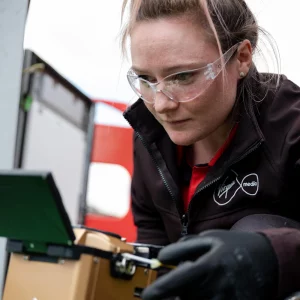Sponsored Links
Avanti UK Wins Key Broadband Satellite Testbed Contract from the TSB
Posted: 21st Jan, 2011 By: MarkJ
 Broadband Satellite ISP Avanti Communications UK, which last November 2010 successfully launched its 'up to' 10Mbps capable HYLAS 1 (Highly Adaptable Satellite) rural broadband spacecraft into orbit around the Earth (here), has today won a crucial new contract worth £216,000 from the UK’s Technology Strategy Board (TSB).
Broadband Satellite ISP Avanti Communications UK, which last November 2010 successfully launched its 'up to' 10Mbps capable HYLAS 1 (Highly Adaptable Satellite) rural broadband spacecraft into orbit around the Earth (here), has today won a crucial new contract worth £216,000 from the UK’s Technology Strategy Board (TSB).The TSB advises Government on how to remove barriers to innovation and accelerate the exploitation of new technologies. It's understood that the project will make use of HYLAS 1 as part of its Digital Advanced Rural Testbed (DART).
DART is just one of five 'Networks Service Demonstrators' selected by the TSB to become national Hotspots where businesses will be able to test new business models, applications and services that can be supported by advanced, open and flexible networks and network services.
David Williams, Avanti's CEO, said:
"The role of Avanti’s satellites in the broadband market is well established but increasingly it is obvious that the relentless increase in demand for bandwidth around the World creates new urgent reasons to integrate satellite capacity into terrestrial networks, especially where video delivery is involved and these contracts provide excellent support for this development."
"The role of Avanti’s satellites in the broadband market is well established but increasingly it is obvious that the relentless increase in demand for bandwidth around the World creates new urgent reasons to integrate satellite capacity into terrestrial networks, especially where video delivery is involved and these contracts provide excellent support for this development."
The DART project was originally announced just three days before HYLAS1's launch last year and will, in total, use a budget of £2m to help establish five different pilots. One of the other testbed's includes using a fibre optic broadband network to stimulate the development of commercially viable, innovative products and services.
According to the PR blurb from TSB. In the first phase, which will last approximately six months, each consortium will develop a demonstrator together with a proof of principle business model, application or service that is enabled by the demonstrator's features. Each demonstrator will then go live and be made available openly for third parties to trial novel business models, applications and services.
Elsewhere Avanti has also announced its involvement with NXY, a €500,000 project funded by the European Space Agency (ESA), which will develop video caching technology in conjunction with Mpeg 4 IP broadcasting to lighten the video burden on mobile phone and fixed line ISPs networks, reducing network congestion and cost.
Search ISP News
Search ISP Listings
Search ISP Reviews
Latest UK ISP News








Cheap BIG ISPs for 100Mbps+
150,000+ Customers | View More ISPs
Cheapest ISPs for 100Mbps+
Modest Availability | View More ISPs
Latest UK ISP News
Helpful ISP Guides and Tips
Sponsored Links
The Top 15 Category Tags
- FTTP (6802)
- BT (3881)
- Politics (3075)
- Business (2767)
- Openreach (2663)
- Building Digital UK (2512)
- Mobile Broadband (2475)
- FTTC (2142)
- Statistics (2128)
- 4G (2092)
- Virgin Media (2025)
- Ofcom Regulation (1779)
- 5G (1732)
- Fibre Optic (1604)
- Wireless Internet (1595)
Sponsored
Copyright © 1999 to Present - ISPreview.co.uk - All Rights Reserved - Terms , Privacy and Cookie Policy , Links , Website Rules






























